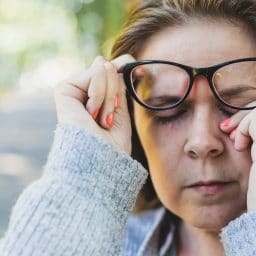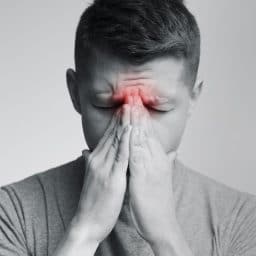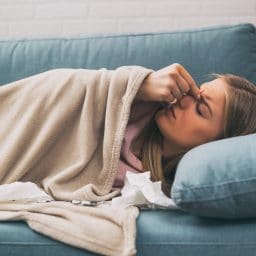Waking Up Bleary-Eyed? It Might Be Morning Allergies

While many of us associate worse allergies with a certain time of year, others experience allergy symptoms more intensely during a particular time of day. If you find yourself waking up most mornings with congestion and itchy eyes, there’s a good chance it could be allergy-related. Symptoms of Morning Allergies Symptoms of morning allergies are…
Are Natural Treatments Effective in Relieving Allergies?

Search online and you’ll find countless claims of natural remedies that will treat your allergies. While many of those claims lack any scientific research to back them up, there are several home remedies that have some evidence they might be effective in relieving your allergy symptoms. Nasal Rinse A nasal rinse is an at-home remedy…
What Are Eye Allergies?

We’ve all experienced watery, itchy eyes and for many of us, it’s a minor and infrequent annoyance. However, if you find yourself regularly experiencing red, swollen, itchy eyes every time you walk your dog around the neighborhood or have a family picnic at Piedmont Park you might have eye allergies. How Common Are Eye Allergies?…
Skip the Shot with Allergy Drops

Immunotherapy is a long-term solution to allergies that works by introducing small amounts of allergens into the body so that the immune system can build up a tolerance. Typically, immunotherapy is delivered in the form of shots. However, many are beginning to instead opt for allergy drops, also known as sublingual immunotherapy. What Causes Allergies?…
Preparing Yourself for Autumn Allergies

Seasonal allergies are often associated with springtime, yet millions of people suffer from autumn allergies as well. If you find yourself dealing with itchy eyes and a runny nose while out enjoying a weekend stroll through Sope Creek Trail this fall you might be one of those affected. While autumn allergies do not pose a…
Is It Allergies or the Delta Variant of COVID-19?
If you’re feeling under the weather, you may be worried that you’ve been infected with the Delta variant of COVID-19. However, this time of year, it could be something as innocent as an allergic reaction to grass or ragweed pollen. Below we describe how to tell the difference. Symptoms of COVID-19 According to the Centers…
If You’re Experiencing Ear Pain, It May Be Allergies

Is there anything more relaxing than a nature hike at Northside Trail? That is, unless you’re plagued by allergy symptoms such as itchy eyes, congestion, runny nose, sneezing and even ear pain. You may be surprised to learn that ear pain can be the result of allergies. We review the connection below. What Causes Allergies?…
Why Do Allergies Develop?

If you have allergies, you may be surprised to learn that you weren’t born with them. Instead, you developed the condition when your immune system first came into contact with a triggering allergen. We review how this occurs below. It Starts with the Immune System The immune system’s job is to protect our bodies from…
What’s the Relationship Between Allergies & Stress?

Allergies are not a result of stress; they occur due to the immune system overreacting to normally harmless substances called allergens. However, research shows that stress can worsen allergy symptoms. The study was published in the Annals of Allergy, Asthma & Immunotherapy in 2014. About the Study This study is the first to establish a…
How to Tell if You’re Experiencing a Migraine or Allergies

Sometimes it can be difficult to tell if you’re experiencing symptoms of allergies or symptoms of a migraine, especially because people with allergies are more likely to have migraines. Knowing which you’re suffering from can help you seek proper treatment. Below we review the similarities and differences between allergy and migraine symptoms, how allergies trigger…